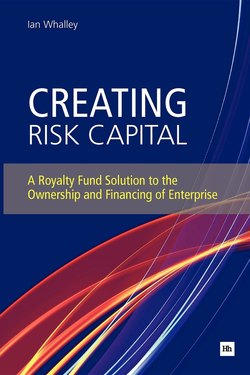Читать книгу Creating Risk Capital - Ian Whalley - Страница 26
На сайте Литреса книга снята с продажи.
The entrepreneur
ОглавлениеAt the origin of each and every enterprise, great and small, it is generally possible to identify one or more of the founders: an entrepreneur who makes it happen. Thus, the grand enterprise of postwar European integration owes its origins to the practical visionary and one-time brandy merchant Jean Monnet, “a little man from Cognac”. [12] The institution of the Red Cross was founded by the Swiss businessman Henry Dunant, after he witnessed the appalling suffering of war on the battlefield of Solferino in 1859. And Britain’s NHS, “the biggest single experiment in social service that the world has ever seen undertaken”, [13] was launched in 1948 by Aneurin Bevan.
The origins of great industrial and business enterprises can usually be traced to the leaders and entrepreneurs, or projectors as they were sometimes called, who launched them. Thus Rolls-Royce can be traced back to Henry Royce and the Hon. Charles Rolls, and the Reuters news and information agency to Paul Julius Reuter; behind the American firm General Electric, there were men such as Thomas Alva Edison, who “gave us light, heat, power, music and the movies”; [14] and behind some of the major enterprises which make up the British rail industry, there were the railway king George Hudson, the entrepreneur Thomas Brassey, and Isambard Kingdom Brunel, who built the Great Western Railway. More recently, the mobile phone company Vodafone can be traced back to the British company Racal and the man who ran it, the late Sir Ernest Harrison.
Similarly, the J P Morgan banking group can trace its origins to the business of the merchant (and later philanthropist) George Peabody. The Standard Oil companies will always be associated with John D Rockefeller, who also became a major benefactor. Some enterprises still bear the names of their founders, like Ford, Honda and Siemens. Others have become a shadow of their former selves, like ICI, the chemical giant created by Alfred Mond, which was once the bellwether of the British economy and is now part of a Dutch conglomerate.
It is the same with organisations set up by entrepreneurs to meet public needs. In Bangladesh, Muhammad Yunus founded the Grameen Bank in 1983 to provide small-scale credit for private enterprise. In Britain, at the heart of private social enterprise, Michael Young created the Institute of Community Studies in 1953, from where he set up practical ventures enabling citizens to come together and create organisations to “produce a public benefit, not a private fortune”. [15]
